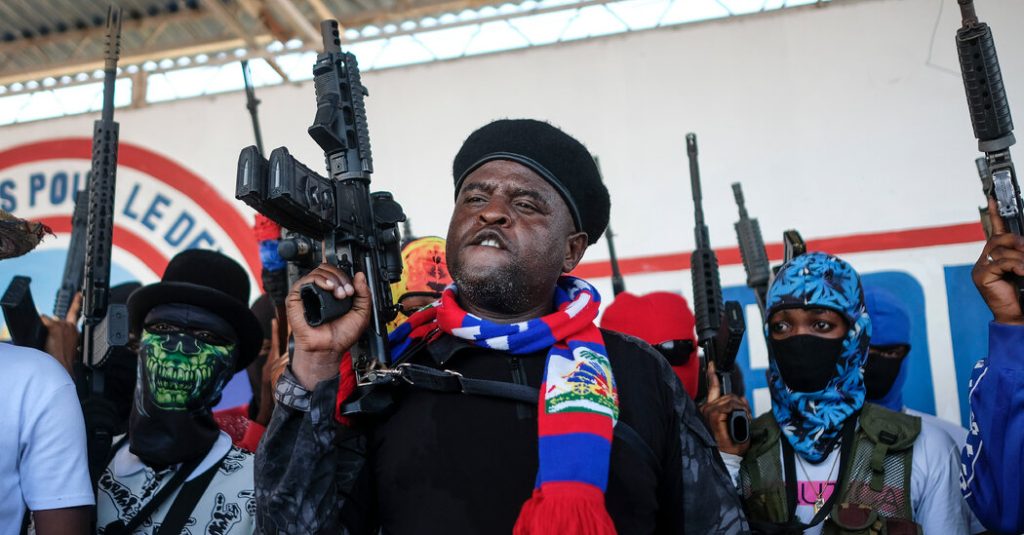Haitian gangs have established a firm grip on the country’s infrastructure, driving thousands of people out of the capital and potentially being linked to the assassination of Haiti’s president in 2021. The influence and capabilities of these gangs are seen as evolving by Western diplomats and officials, presenting a significant threat to the Kenyan-led multinational police force preparing to deploy to Haiti and the transitional council working towards elections. These gangs have become more independent financially since the collapse of the state following the president’s assassination, relying less on traditional sources of support. They have also acquired a more powerful arsenal of weapons, including automatic weapons stolen from regional militaries.
Several Haitian gangs have started working together, forming an alliance known as Vivre Ensemble with the aim of overcoming obstacles to their drug-smuggling operations caused by the closure of the Dominican Republic’s border with Haiti. While this alliance initially fell apart, it was resurrected in late February with a renewed focus on resisting the Kenyan-led security force. The gangs have also shown a change in public posture, portraying themselves as militias with national ambitions rather than just involved in turf wars. This shift in dynamics has led to high-profile prison breaks, major political resignations, and connections to larger criminal organizations in the region.
Key figures within the Haitian gangs, including Johnson André and Vitel’homme Innocent, are suspected of involvement in the assassination of former President Jovenel Moïse. Gang leaders like Dmitri Hérard have been linked to major drug trafficking cases and are believed to be providing guidance to the gangs and connections to international criminal networks. The gangs in Haiti are increasingly involved in drug trafficking, and there are concerns that they may be seeking to recruit former security officials, such as Hérard, who were previously involved in the drug trade under past administrations.
Former Haitian President Michel Martelly, who faced accusations of corruption during his presidency from 2011 to 2016, has been implicated in lobbying efforts to influence the interim government, including potentially securing immunity for gang members and other government officials accused of corruption. These actions have drawn criticism for potentially further destabilizing the country and undermining the integrity of the transitional council working to navigate Haiti’s crisis. There are fears that granting amnesty to gangs and corrupt officials could exacerbate existing human rights violations and deepen the country’s political and security challenges.
The involvement of high-ranking officials in criminal activities and connections between gangs and drug cartels paint a grim picture of Haiti’s security landscape, with potential implications for regional stability and international efforts to restore order in the country. The evolution of Haitian gangs into more organized and well-armed entities poses a significant challenge to incoming multinational police forces tasked with restoring security and supporting the transitional election process. The situation underscores the complex web of political, criminal, and economic interests at play in Haiti, and the urgent need for coordinated international action to address these deep-rooted challenges.








